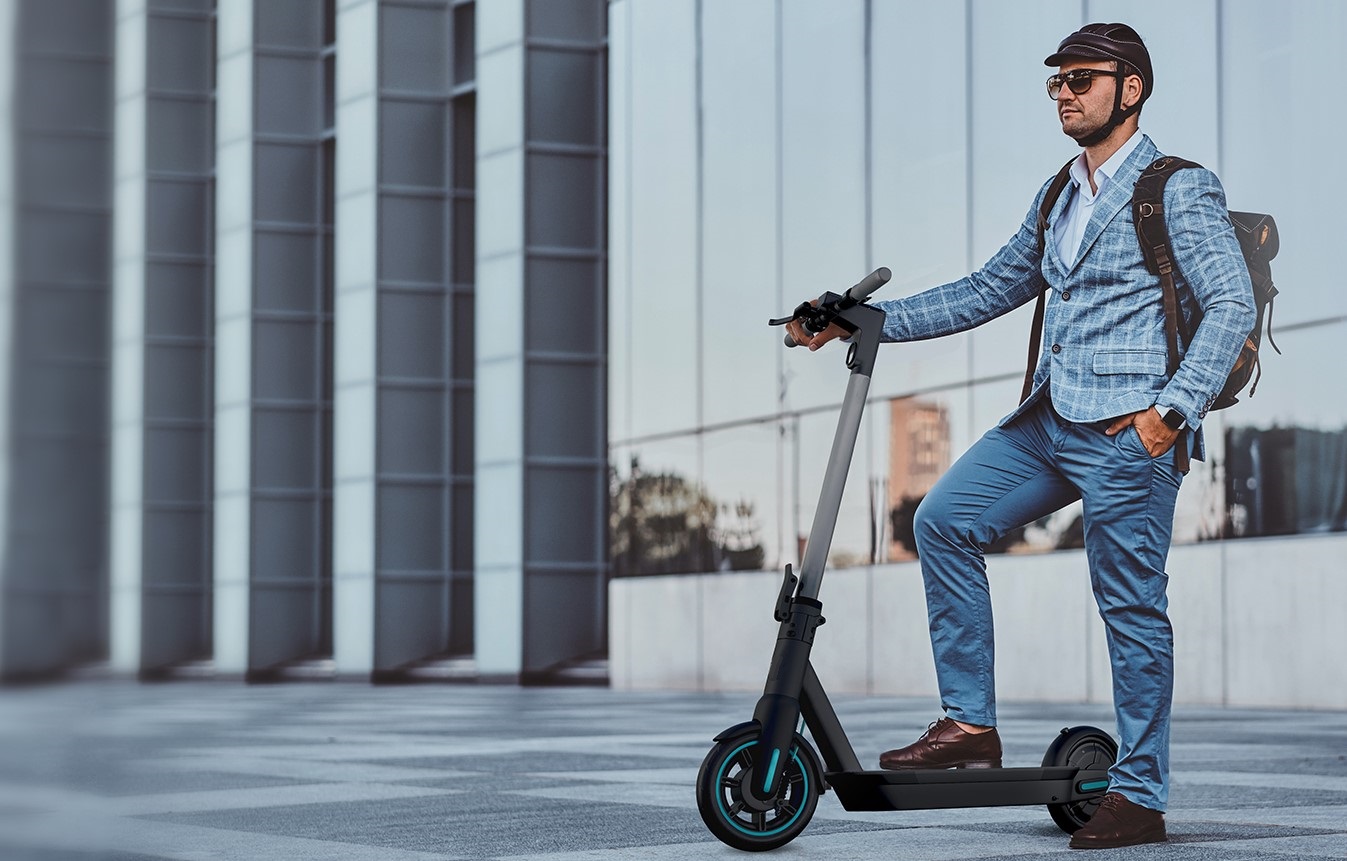E-scooter safety will no doubt feature heavily in the Government’s review of the legalities of e-scooters in the UK. Rob Hitch decided to carry out the safety comparison below between electric scooters / PLEVs and bicycles and it showed that e-scooters / PLEVs can be a lot safer than people realise!

Electric Scooter vs Bicycle – Accident Statistics
PLEVs (electric scooters, electric unicycles and electric skateboards) are relatively new to the scene when compared to bicycles / other modes of transportation. Although I’m very familiar with the safety benefits of riding PLEVs, getting hold of UK accident statistics for the same time periods, was problematic. So a few assumptions had to be made.
Electric Scooter / PLEV Accident Statistics
In October 2020, the Bicycle Association estimated that there are about 200,000 electric scooters in the UK (https://www.theguardian.com/uk-news/2020/oct/07/the-e-scooter-road-menace-or-saviour-of-the-commute). It is unclear whether this figure includes the trial electric scooters (as part of the UK Government electric scooter trials) or personally owned devices, comprising of electric scooters, electric unicycles EUCs, one wheels or electric skateboards (estimated at 140,000 devices around late 2019).
However Police forces across the UK, revealed approximately 1,600 incidents for the year 2018-2019, involving electric scooters, hoverboards and Segways were reported (https://news.sky.com/story/electric-scooters-criminal-damage-and-traffic-collisions-among-hundreds-of-police-incidents-11790527).
Cycling Accident Statistics
According to Cycling UK, around 5-6% of the population aged 16+ in Great Britain as a whole ride their bikes at least once a week or more for transport purposes (https://www.cyclinguk.org/statistics) = 2.3 – 2.8 million people 2018.
ROSPA stated – “In 2018, 99 pedal cyclists were killed, 4,106 seriously injured and 13,345 slightly injured in Great Britain” bringing the grand total to 17,500 cycling related incidents.
Which is safer?
The accident statistics work out as follows:
Electric scooter / micromobility Incidents = 0.64%.
(Based on 250,000 active riders with 1600 reported incidents).
Cycling Incidents = 0.70%.
(Based on 2.5Million active adult cyclists with 17,500 reported incidents).
E-scooter safety and cycling safety are pretty much even as far as the statistics are concerned.
Why Electric Scooters / PLEVs can be Safer?
Slower than bicycles – Many experienced cyclists are used to riding anywhere between 20-30mph, whereas most electric scooters / PLEVs have a top speed of appx. 15.5mph. Like bicycles, there are versions that can be ridden faster (subject to road conditions).
Better Lighting – Powered by the main motor battery, electric scooters and electric unicycles typically have built-in front and rear lights, with one or both lights permanently on. Lighting is usually supplied separately for bicycles, resulting in many cyclists riding without any lighting.
See further ahead – Riding electric scooters or electric unicycles (EUCs) usually requires an upright riding position, enabling the rider to see further ahead than car drivers or cyclists.

Personally Owned Devices – Personally owned electric scooters / electric unicycles (EUCs) are considered to be safer than trial electric scooters for one key reason; INVESTMENT. These devices require a significant initial outlay, which the owner is keen to protect.
Owners of electric scooters / PLEVs will usually take time to really understand their devices, acceleration, braking, device behaviour in different conditions. Some devices such as electric unicycles etc. take more time / skill to learn. Owners are also more likely to invest in quality safety gear, as the last thing a device owner wants is to harm themselves and / or their device, preventing them from riding again!
Rental electric scooters however can be ridden with comparatively negligible outlay. First time renters are usually not familiar with the device they’re about to ride and may also be riding on the road for the first time, often with either no or minimal personal protection.
A rental scooter is not the renters property, it’s likely insured, which can sometimes result in more careless riding behaviour. Unfortunately careless riding isn’t only restricted to electric scooters. There’s always a minority of riders / drivers showing careless behaviour, whether they’re riding an electric scooter / PLEV, bicycle, e-bike, motorbike, car or truck.
Legalisation of personally owned devices will likely result in more sensible / defensive riding, further reducing accident statistics and help improve e-scooter safety.
Published by kind permission of ROBHITCH.COM

